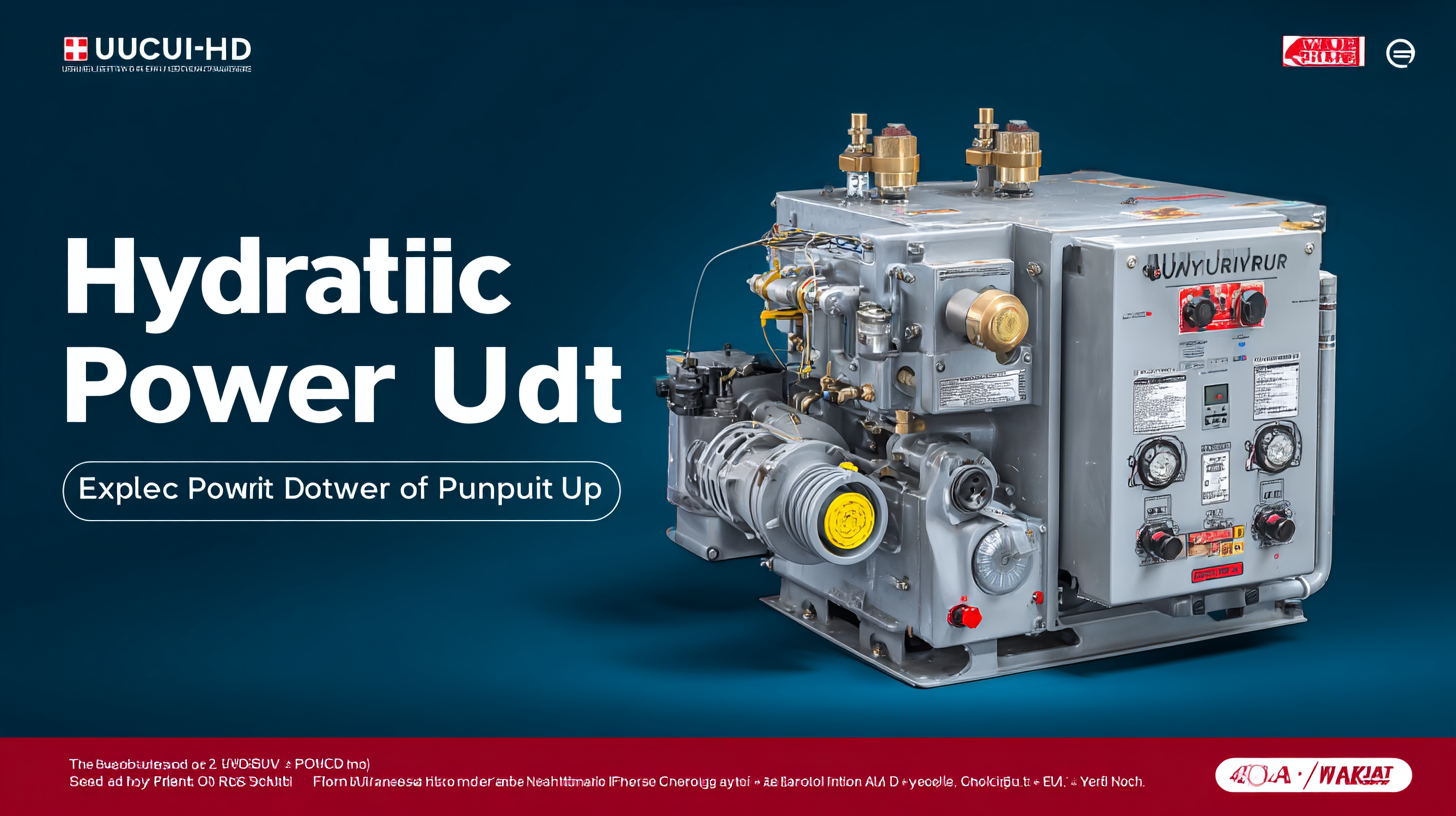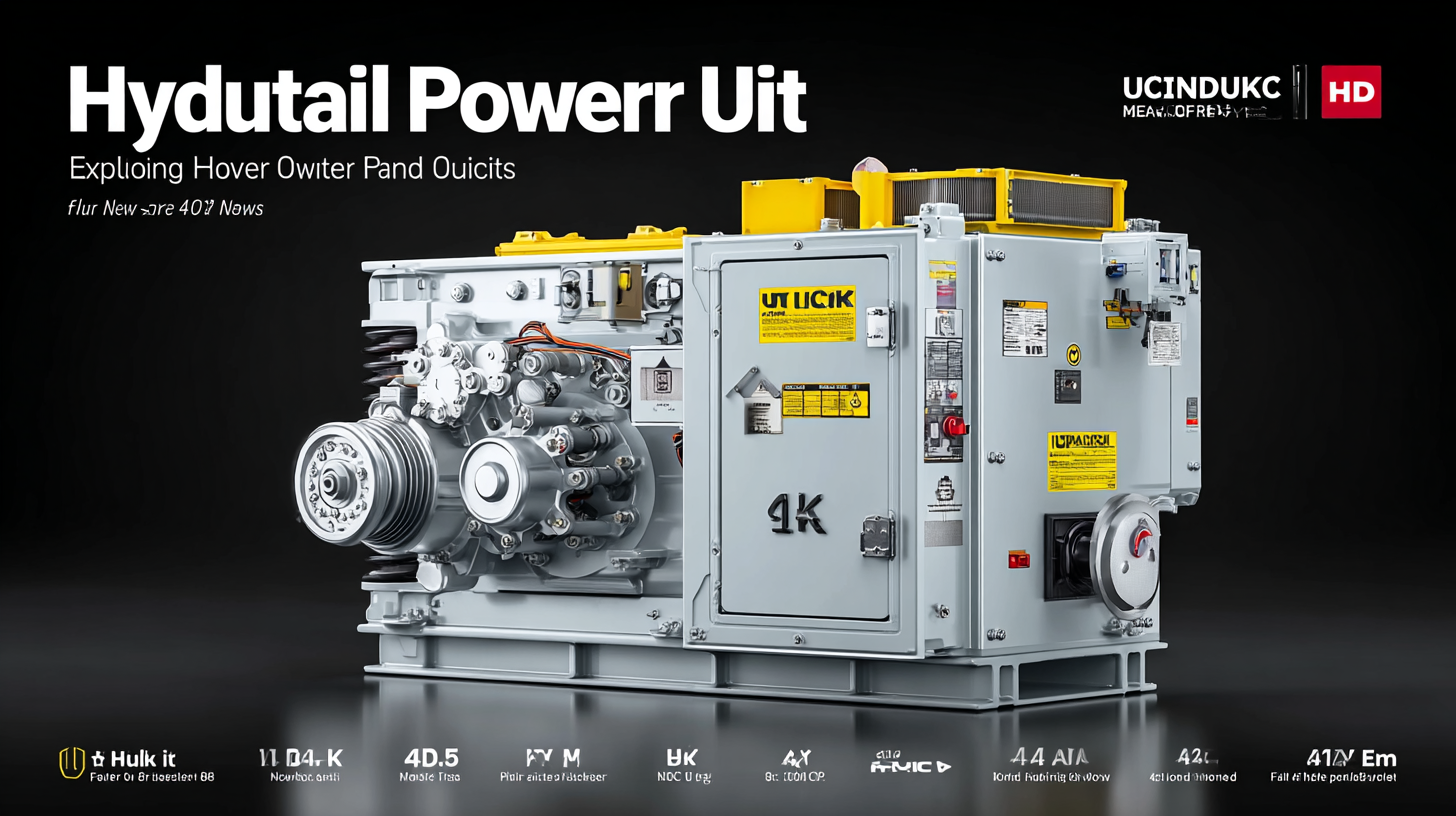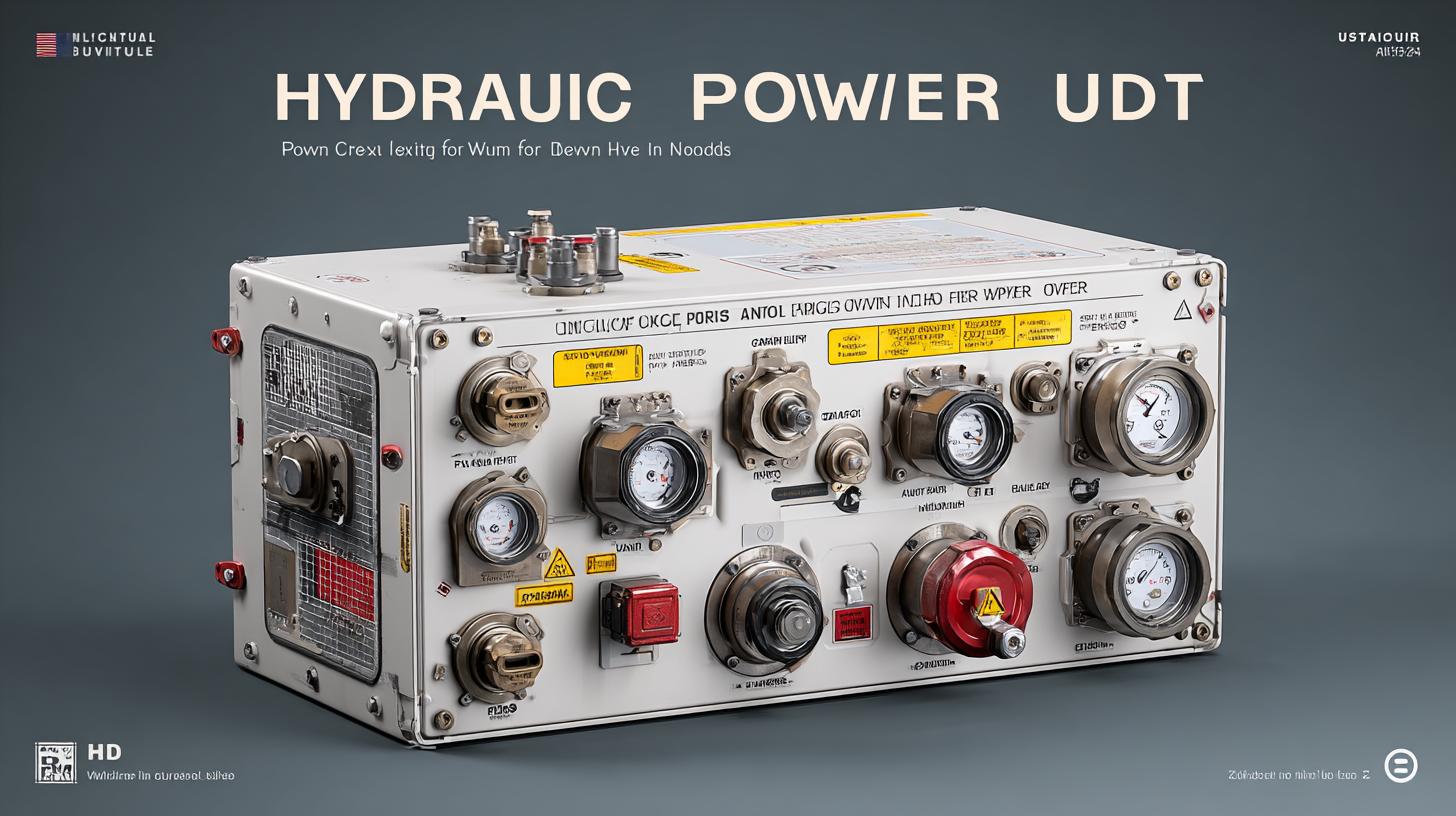
In recent years, the hydraulic power unit (HPU) has emerged as a cornerstone in various industrial applications, ranging from manufacturing to construction and aerospace. According to a report by MarketsandMarkets, the global hydraulic equipment market is projected to reach $55.65 billion by 2025, driven by advancements in technology and increased demand for efficient power systems.

HPUs play a crucial role in powering hydraulic machinery, providing essential force and motion required for effective operation. Their versatility allows for numerous applications, including material handling, machine tools, and various automation processes. However, with an array of options available, understanding the key features and selecting the right hydraulic power unit to suit specific industry needs is vital for optimizing performance and productivity.
This blog will explore the essential characteristics of HPUs, their applications across different sectors, and guidelines for making an informed choice tailored to your requirements.
Hydraulic Power Units (HPUs) play a crucial role in today’s industries by providing the necessary force to operate machinery and equipment. These units convert hydraulic energy into mechanical energy, enabling various applications such as lifting, pushing, and rotating heavy loads with precision. From construction sites to manufacturing plants, HPUs are essential for optimizing performance and enhancing productivity. Their ability to deliver consistent and controllable power makes them indispensable in sectors like automotive, aerospace, and material handling.

Understanding the importance of HPUs involves recognizing their versatility and efficiency. They can be tailored to meet specific operational needs, whether for simple tasks or complex automated processes. Moreover, with advancements in technology, modern hydraulic systems offer improved energy efficiency and reduced maintenance costs, catering to the growing demand for sustainability in industrial operations.
Choosing the right HPU can significantly impact workflow efficiency, highlighting the need for businesses to evaluate their requirements carefully and consider features such as power output, size, and versatility when selecting a unit.
When selecting a hydraulic power unit (HPU), understanding its key features is paramount for ensuring reliability and efficiency in your applications. One of the most critical elements is the pump type; gear, vane, and piston pumps each offer unique benefits depending on the required flow rate and pressure. According to a report by the International Journal of Fluid Power, piston pumps are preferred in high-pressure applications, as they can achieve pressures exceeding 5000 psi, making them ideal for heavy-duty tasks.
Another essential feature is the tank capacity, which directly influences the unit’s performance and operating time. A larger tank can provide sustained operation without frequent refills, thus enhancing productivity. In fact, the Fluid Power Manufacturers Association (FPMA) suggests that units with a minimum capacity of 5 gallons can operate efficiently in most industrial settings.
**Tip:** Always evaluate the thermal management capabilities of the HPU. A unit equipped with cooling systems can prevent overheating in extended operations, ensuring longevity and reliability.
Furthermore, consider the control options available. Advanced HPUs now come with digital controls that offer precise flow and pressure adjustments, increasing adaptability to varying operational demands. As highlighted by a 2022 market analysis, the demand for electronically controlled hydraulic systems is steadily rising due to their efficiency and ease of use.
**Tip:** When evaluating models, prioritize those that provide real-time monitoring capabilities to streamline maintenance and improve performance reliability.
Hydraulic power units (HPUs) play a crucial role across multiple industries, demonstrating their versatility and efficiency in various applications. According to a report by MarketsandMarkets, the global hydraulic power unit market is projected to reach USD 3.2 billion by 2025, driven by increasing automation and the demand for energy-efficient solutions. Industries such as construction, manufacturing, and automotive are leveraging HPUs for tasks ranging from heavy lifting and material handling to precise engineering processes, highlighting the unit's essential role in modern operations.
In the construction sector, hydraulic power units are critical for powering equipment such as excavators, cranes, and concrete pumps. For instance, a typical hydraulic excavator relies on a power unit to generate the force necessary to lift and move heavy loads, which can range from a few tons to over a hundred tons, depending on the size of the equipment. Similarly, in the manufacturing domain, HPUs contribute to hydraulic presses, which are vital for metal forming and assembly line processes. The versatility and reliability of HPUs not only enhance productivity but also significantly reduce operational downtime, making them an indispensable asset in today’s industrial landscape.
When selecting the ideal hydraulic power unit for your specific requirements, it's crucial to consider a few key factors that influence both performance and efficiency. First, assess the power type—electric or diesel. Recent innovations highlight a range of new electric and diesel-powered hydraulic power packs designed for portable machine tools, showcasing the versatility these options can provide for different applications. Evaluate the power output needed for your specific tasks, as this directly impacts the efficiency of the hydraulic system.

Another important aspect to consider is the integration of modern technologies. For instance, advancements in hydraulic-electric hybrid systems have shown promising results in optimizing performance for biped robots. Such technologies can enhance adaptability in various environments, ensuring that the selected unit is not only effective but also responsive to changing operational demands. Additionally, the durability of hydraulic components, such as the utilization of braided hydraulic hoses, offers weight and cost savings without sacrificing performance. This exemplifies the ongoing trend towards efficient design, crucial for contractors and operators focused on maximizing their productivity and reliability.
Hydraulic power units (HPUs) are essential components in a wide range of industrial applications, providing the necessary power to facilitate operations such as lifting, pushing, and fluid movement. Different types of HPUs offer unique advantages tailored to specific industrial environments. For instance, electric-driven HPUs are known for their efficiency and lower operational costs, offering an energy saving of up to 30% compared to traditional hydraulic systems, according to a report by the Hydraulic Institute. On the other hand, diesel-powered units are praised for their portability and high power-to-weight ratio, making them ideal for construction sites and mobile applications.
The choice of hydraulic power unit heavily depends on the application requirements. A report from the International Hydraulic Engineering Society indicates that variable displacement pumps are increasingly favored in applications requiring precise fluid control, as they can adjust the flow and pressure dynamically, enhancing performance and reducing energy consumption. Additionally, compact HPUs with integrated filtration systems are gaining traction in tight-fitting spaces, demonstrating a surge in demand for systems that are both space-efficient and capable of maintaining fluid cleanliness, projected to grow by 15% in the coming years. This diversity in options allows users to select HPUs that align with their operational goals, ensuring maximum efficiency and productivity in their processes.
| Type of Hydraulic Power Unit | Key Features | Common Applications | Advantages |
|---|---|---|---|
| Electric Hydraulic Power Unit | Quiet operation, energy-efficient, easy to control | Elevators, hydraulic presses, automotive repair | Lower energy costs, minimal noise, precise control |
| Diesel Hydraulic Power Unit | High power output, portable, suitable for remote locations | Construction, mining, off-grid operations | Versatile in various environments, powerful performance |
| Gas Hydraulic Power Unit | Compact, lightweight, flexible usage | Landscaping, small equipment, emergency response | High portability, suitable for quick setups |
| Hydraulic Power Packs | Modular design, customizable configurations | Manufacturing, robotics, aerial work platforms | Highly adaptable for various systems, efficient operation |
